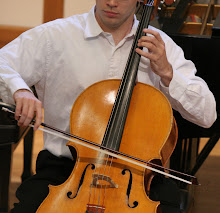The material I have in mind divides naturally into three parts:
I. Introductions-the core structure of the argument
II. Implications-what does it mean?
III. Applications-how can it be used?
It may also prove valuable to set the table with a general philosophical framing of the need for this thesis. For now I intend to begin with the meat of the argument.
The thesis proposal has taken several layers of rewrites to achieve a stable wording (as of 06/03/09), but it finally says more or less what I want it to say. The conceptual structure it establishes will be elaborated in a series of separate posts aimed at the general reader. Hopefully, this piecemeal approach will enable more frequent posting as well as more precise targeting of comments.
Active links in the outline below will go to finished posts, and the dates indicate the most recent revisions.
Part I:
STRUCTURE OF INTELLIGENCE: The first half of Part I will be taken up with a nontechnical introduction to the structure of intelligence, thus setting the conceptual stage for the presentation of the emotional core of the thesis in the second half.
Intelligence I: Representations (04/07/09) A general definition of intelligence as pattern-recognition, retention, and use, together with a short introduction to the neurological basis of this pattern representation.
Intelligence II: Prediction (04/03/09) If I start counting "one, two, three, ...," your memory supplies the next term easily even though it hasn't yet occurred. This post introduces the central role of prediction in intelligence.
analogy An equally significant staple of human intelligence, as indicated by the ease with which "wubbun, tooboo, threebee, ...," can be decoded despite the lack of a specific memory match.
internalized concepts what confers the ability to execute complex learned behaviors (like driving) without paying attention?
computational approaches links to (and possibly an overview of) various efforts in this end of the science
INSTINCTS AND EMOTION: Once a conceptual framework for intelligence has been established, it becomes possible to lay out the heart of the thesis, which proposes that the logic of intelligence can be extended into an elegant but powerful explanatory theory of emotion. Possible subheadings include:
the biology of instincts v reflexes; types of instinctive drives
explanation and development of thesis, with examples and thought experiments
moods v emotions
connections to other theories of emotion (neuroscience, psychology, philosophy)
valence
somatic
judgement
perceptual
other
etc.
More subheadings will emerge, of course. Perhaps philosophical interludes which foreshadow several connections of eventual importance will appear between some of the Part I posts, or perhaps not. Too early to tell.
Part II will most likely deal with corollaries and logical extensions of the unfolded definitional thesis of part I, examining implied integrations, connections, and limitations. It may be organized into broad categories like science, politics, and philosophy, or may be more highly interconnected. We'll see when we get there. A placeholder post has already been set up to get things started, but it must be written with great care and is therefore on hold until a large enough block of uncluttered thinking time emerges. Its structure will be informed by the flow of the arguments in Part I and will guide the eventual shape of the outline of Part II.
Part III will look at actionable policy recommendations and general strategies for applying the ideas found in parts I and II, as it appears that there will be some of a fairly profound and systemic nature. Again more details when they become practical.
Your input is solicited!
Subscribe to:
Post Comments (Atom)

Have you read The Origin of Consciousness in the Breakdown of the Bicameral Mind by Julian Jaynes? I'll grant that the "left hemisphere/right hemisphere" distinction is probably simplistic, but the general idea that what we call consciousness is a cultural artifact is certainly worth keeping in mind, in any discussion including the concept of "identity".
ReplyDeleteDaniel Everett in his new book "Don't Sleep, There Are Snakes: Life and Language in the Amazonian Jungle", introduces some interesting facts regarding linguistic limitations of one particular people (the Pirahãs of Brazil). Although he assumes their mental limitations are a result of their language, the converse cannot (IMO) be ruled out.
One suggestion Jaynes made that I found untenable was that there had actually been evolution among humanity since the introduction of agriculture, when the "bicameral mind" came to prominence. However, the recent book
"The 10,000 Year Explosion: How Civilization Accelerated Human Evolution" by Gregory Cochran and Henry Harpending makes a convincing point otherwise: more evolution among humanity has probably occurred in the last 10,000 years than in the previous 40,000.
Another point re intelligence, there are two ways of coming at it: a system of creating analogical "models" of the world, and a system of "reacting" to present and (remembered) past stimuli in a way that anticipates upcoming/future occurances. The latter subsumes the former, but not vice versa. Personally, I would use the term in the broader sense, so a cell is "intelligent" because it can anticipate future occurrance and "preact" to them. The fact that it appears to do this without a discrete "model" of the ongoing universe shouldn't exclude it.
Speaking of "modeling", and awareness, AFAIK even the more primitive fish have a system of "modeling" their universe. I would localize it to the brain circuits that pass through the regions homologous to the cerebral cortex in mammals (wulst in birds, etc.), that synchronize and integrate the input from eyes (and perhaps lateral line) with those from the nostrils, all of which sample their environment in S-shaped paths compared to the swim direction, which in turn can vary relative to the bottom environment. IMO we can trace the origin of universe modeling to this system, which probably wasn't necessary for any other phylum, since (AFAIK) all the others basically follow a slow crawling path or lie in wait except for sudden "emergency" movements.